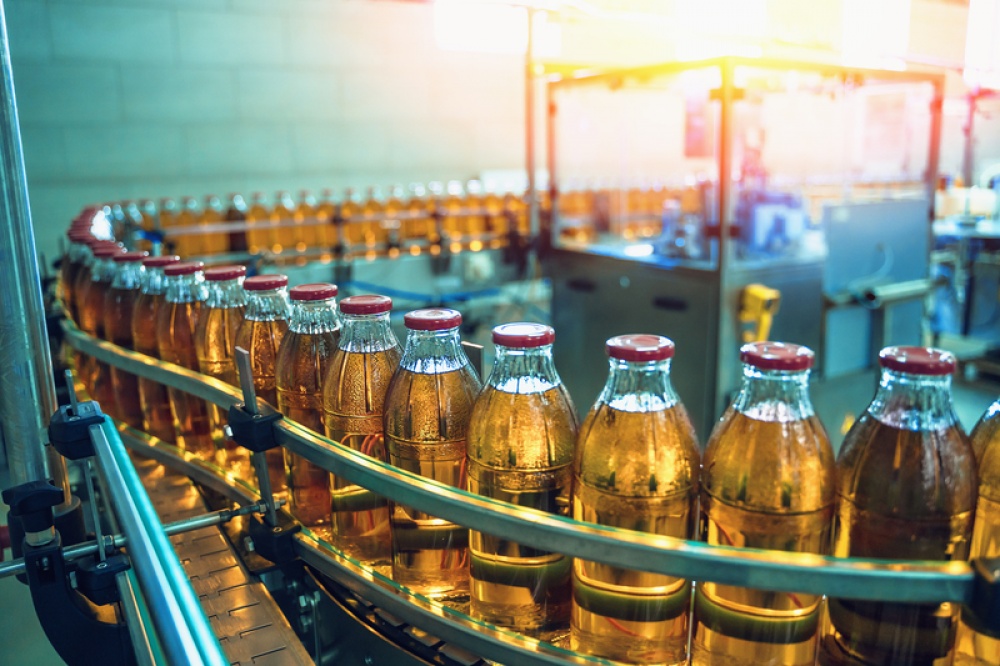Beverages (or drinks) are simply classified into non-alcoholic‘ and alcoholic‘ beverage categories. Non-alcoholic beverages are a vast group and include everything from tea, coffee, juice, soft drinks, cocoa and chocolate drinks to milk products (like yoghurt) and carbonated drinks. The popular alcoholic beverages include: beer, wine, and spirits.
As you may have noticed, beverage products are made from a wide range of raw materials. Juices and wines are produced from fruits while beverages like beer are processed from grains like barley, malt and in some parts of Africa, cassava. The consumption of beer in Africa has been on a steady rise and the continent is considered to be a growth engine for the global beer market.
Tea and coffee, particularly grown in East Africa, have been highly traded commodities for decades and remain a huge export opportunity for Africa. There is also a large and growing market for juices, wines and thousands of locally-made beverages across Africa.
The growing consumption of wine imported from abroad is a sign of a developing taste among the continent‘s middle class. Countries like Nigeria have one of the highest consumption of champagne in the world and the size of its champagne market is expected to exceed $100 million by
Business Concept
There are probably two avenues that you could take to create a profitable beverage business in Africa; one is to become an importer and distributor, the other is to build your own beverage brand – and while the latter may be more of a headache, it can potentially become more profitable in the long run.
As a distributor, the selling of wine and other alcoholic beverages is one that allows you to step into a market with growing demand. Wine and other alcoholic brands are usually still not widely available across Africa and when they are they are hugely expensive. The fast-growing consumer sector in Africa with a rising middle class will lead to great demand in this regard.
The other option is to build your own African beverage brand. This is a growing trend among African entrepreneurs, in particular in regard to tea and coffee, possibly because you do not require complex manufacturing equipment to process that – you can start it with very simple equipment.
Some have managed to create their own unique blend and own a niche market by selling to hotel chains or hip restaurants; others have created a coffee shop brand around their coffee brand, serving their beverages to customers directly.
Or you get yourself a juice maker truck, where all manufacturing equipment is set up in a truck. You can then collect left to rot‘ fruits from farmers at a cheap price and make juice from it straight away (make sure you read Idea 8 about fruit juices if you jumped that).
Niche idea
Produce juice in small-sized juice boxes for children. They are a favorite for children‘s lunch boxes across the world.
Top Countries & Policy Guidance:
The beverage business would work in any country, but may have best outcomes in countries with less competition in this regard.
Mozambique: Be aware that in October 2013, the government introduced regulations on the control of the production, marketing and consumption of alcoholic beverages.
Action & Tips
There are several international and South African beverage companies that are currently looking for African distributors. Look out for those companies, visit websites, or simply call the head office of a certain company and inquire about such possibilities.
Success Story
Romal Shah – Safari Lounge Tea (Kenya)
Kenyan entrepreneur Romal Shah returned home to Kenya in 2007 wondering what he could do. Not one to give up easily, Shah decided to shift his focus to tea where he noticed a gap in the market: In a report he stated that hotels were getting ‘sweepings off the floor’ and not the best quality tea. ‘Good quality coffee and tea gets exported.
We are left with mediocre level coffee. There are a lot of four star and five star hotels in Kenya and they want orthodox tea, which is higher-end tea.’ Romal Shah made contacts in the tea industry and created his own Kenyan brand ‘Safari Lounge’ and is today selling his tea to several hotel chains in Kenya.
